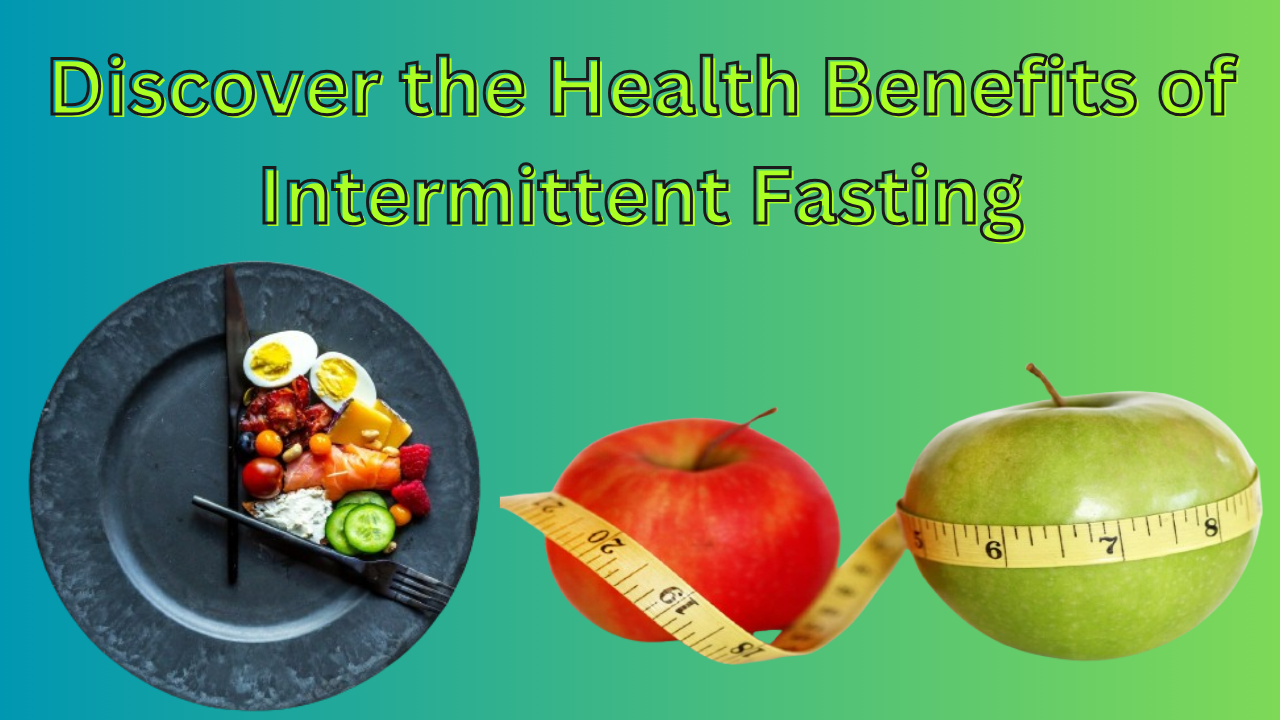Intermittent fasting has become a popular way to boost health. It involves switching between eating and not eating, which can do more than just help with weight loss. If you want to learn how intermittent fasting can benefit your health, this guide will give you all the details to start.
Intermittent Fasting Made Simple:
Intermittent fasting means alternating between eating and not eating. Instead of focusing on what you eat, intermittent fasting is all about when you eat. Here are some common methods:
- 16/8 Method: Fast for 16 hours, then eat during an 8-hour window.
- 5:2 Method: Eat normally for 5 days, and limit calories to 500-600 on 2 days.
- Eat-Stop-Eat: Fast for 24 hours a few times a week.
Top Health Benefits of Intermittent Fasting:
- Weight Loss and Fat Loss: Intermittent fasting helps you eat fewer calories and boosts your metabolism, which can lead to weight loss and fat burning.
- Improved Metabolic Health: IF can enhance your metabolism, improving insulin sensitivity and lowering blood sugar, which is great for people with or at risk of type 2 diabetes.
- Better Brain Function: IF promotes a protein called BDNF, which helps your brain stay sharp, improves memory, and may protect against diseases like Alzheimer’s.
- Increased Longevity: Animal studies suggest IF might help you live longer. While more research is needed for humans, it’s a promising benefit.
- Reduced Inflammation: IF can lower inflammation, which is linked to many chronic diseases, leading to better overall health.
- Enhanced Cell Health: IF helps your body clear out damaged cells and create new ones, which can boost your health and reduce disease risk.
- Better Heart Health: IF can lower risk factors for heart disease, such as high blood pressure, cholesterol, and inflammation.
Getting Started with Intermittent Fasting:
- Choose Your Method: Pick a method that fits your lifestyle. The 16/8 method is often easiest for beginners.
- Stay Hydrated: Drink water, herbal teas, or black coffee during fasting periods to stay hydrated and curb hunger.
- Focus on Healthy Foods: When you eat, choose nutritious foods like lean proteins, vegetables, fruits, whole grains, and healthy fats. Avoid processed and sugary foods.
- Listen to Your Body: Pay attention to how you feel. If you’re overly hungry or tired, adjust your fasting plan or consult a healthcare professional.
Common Misconceptions about Intermittent Fasting:
- Fasting Means Starvation: Intermittent fasting isn’t about starving yourself; it’s about when you eat. You should still eat balanced meals during eating periods.
- Only for Weight Loss: While intermittent fasting can help with weight loss, it also offers other health benefits, like improved metabolism and brain function.
- Hard to Follow: Many find intermittent fasting easier than traditional diets. Once you adjust, it can become a natural part of your routine.
Conclusion:
Intermittent fasting is a flexible and effective way to improve your health. From weight loss to better brain function and heart health, intermittent fasting offers a range of benefits. Choose a method that works for you, eat well, and enjoy a healthier lifestyle.
Also see: Best Game of 2024



